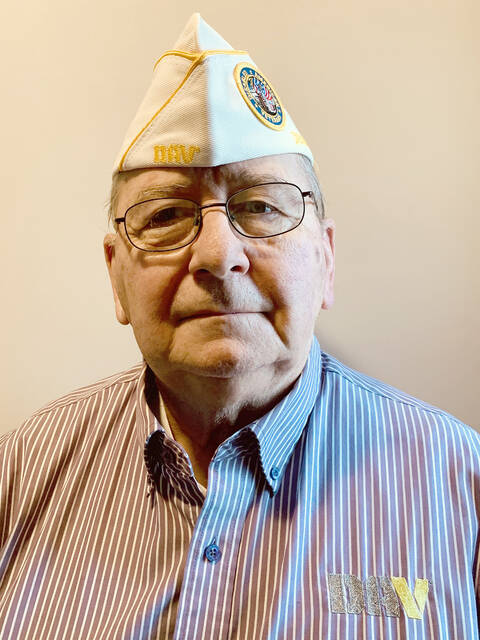On Dec. 5, the House of Representatives passed a proposed legislative bill, which will positively and specifically impact disabled veterans. This bill was supported by local Congressional Representatives Brad Wenstrup, Warren Davidson, and Greg Landsman.
The Elizabeth Dole Home and Community-Based Services for Veterans and Caregivers Act ( H.R. 542) was passed by a vote of 414-5. Sponsored by Congresswoman Julia Brownley, this bill is the single largest expansion of long-care services at the Department of Veterans Affairs (VA) in many decades.
“Long-term care is one of the biggest challenges facing our aging population and their families,” said Congresswoman Brownley, “and our veteran population is no exception. In fact, almost half of VA’s patient population is over 65 years old.”
“Disabled and aging veterans want to be cared for in their home, with their families, in their communities,” commented Brownley, “and our veterans have more than earned the right to have the option of living their lives at home.”
The companion Senate Bill for H.R. 542 is S. 141, the Elizabeth Dole Home Care Act. It was introduced in the Senate on January 30, 2023 and was referred to the Senate Veterans Affairs Committee on February 16, 2023.
Senate Bill 141 has twenty-seven (27) Senators (18 Democratic; 7 Republican and 2 Independent ) co-sponsoring this bipartisan legislation. Currently, neither Ohio Senator has committed to co-sponsor this bill.
My Opinion: I firmly believe that the VA will face a significant problem within the next two decades because the rapidly-growing elderly veteran population will strain the VA’s ability to provide long-term care (LTC).
The VA is required to provide necessary LTC services to veterans with service-connected disability ratings of 70% or higher and who are at least 85 years old.
The number of these veterans is expected to grow in the next two decades by a projected 600%. As a result, the VA costs for LTC services and supports will be projected to double by the year 2037, just to maintain current services.
Senate Bill 141 would improve VA programs for home and community-based services for veterans, and offer a range of programs that may be less expensive and significantly more preferable to veterans as they age.
The Senate version of the bill would increase the expenditure cap for noninstitutional care alternatives to nursing home care, which would encourage more development of home and community services.
This proposed legislation would require the VA to coordinate with the Program of All-Inclusive Care for the Elderly (PACE) for veterans in locations that provide it.
It would require the VA to make certain programs, including Veterans Directed Care and Home Maker and Home Health Aide Programs, available at every VA medical center.
The Senate Bill would improve respite services for the VA’s Program for Comprehensive Assistance to Family Caregivers (PCAFC) recipients and assist in providing options for caregivers who are not eligible for the program.
The proposed Senate Bill would require VA to develop a centralized website for program information for long-term services and support.
In February of 2023, when I attended the Disabled American Veterans (DAV) 2023 Winter Legislative Conference, the National DAV Legislative Team implored all attendees to advocate for the passage of the House and Senate versions of the Elizabeth Dole Home Care Acts.
As of December 12, 2023, a total of 17,066 participants in the DAV’s Commander’s Action Network (C.A.N.) have sent emails to their respective United States Senators asking for their support in passing Senate Bill 141.
Because I feel that this Senate Bill would strengthen and expand access to home and community-based services for veterans, I have already voiced my opinion to Senators Sherrod Brown and J.D. Vance on this issue.
Now, on the House’s passage of H.R. 542, the vote was 414-5. I have researched the five (5) Representatives who voted against the passage of H.R. 542 on December 5, 2023. One of them, Congressman Chip Roy of Texas, has issued a Press Release indicating why he voted “nay.”
The Press Release stated: “With almost $34 trillion in debt and skyrocketing inflation, we as a country do not have the luxury of writing checks for even the most laudable programs — such as those to assist veterans — without first figuring out how to actually pay for them. How we do things matters just as much as what we do in this regard.
This body, as a rule, has to stop kicking the can down the road with budget gimmicks. That’s how this country got into our current fiscal disaster in the first place.”
I agree with Texas Congressman Chip Roy on two (2) points. First, that this Senate Bill is a “laudable program” for veterans. Second, the Senate “has to stop kicking the can down the road.”
I remember a radio commercial for FRAM Oil Filters that was used many decades ago. The ending slogan was: “You can pay me now, or you can pay me later!” The intended meaning is: If you don’t buy the oil filter now, you will pay a more expensive bill to repair the damage to the vehicle later.
The Senate “must stop kicking the can down the road” and pass S. 141. Long-term planning must be started by the Senate for long-term care (LTC) for our veterans. This planning must start today with the passage of the Elizabeth Dole Home Care Act.
BioSketch: John Plahovinsak is a 32-year Army veteran, who served from 1967 to 1999. He is the Disabled American Veterans (DAV) Department of Ohio’s Hospital Chairman and the Adjutant for Chapter #63 (Clermont County). He can be contacted at: plahovinsak@msn.com.
Page THREE of THREE Pages

